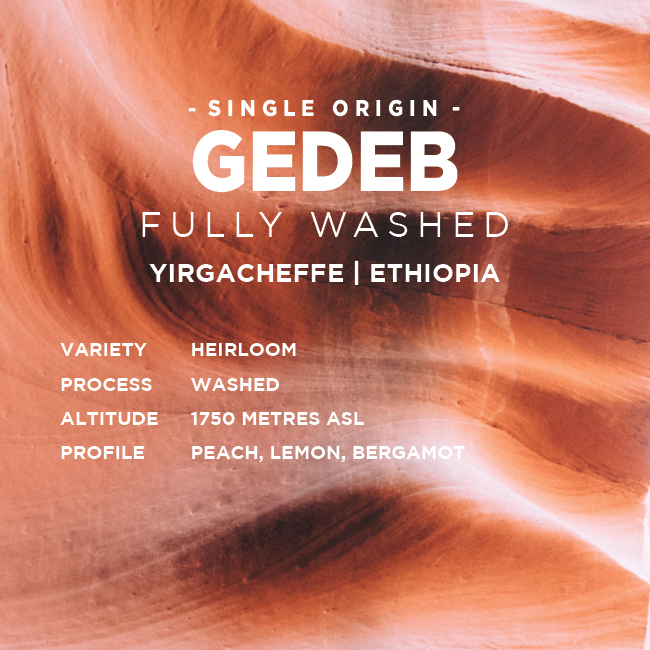This site is protected by hCaptcha and the hCaptcha Privacy Policy and Terms of Service apply.
In the cup: Elegant, fruit driven acidity with abundant florals. Gently rounded and balanced with wonderful notes of bergamot, stone fruit and citrus.
Cupping score: 88
Mouthfeel: Creamy, soft
Variety: Heirloom
Process: Fully washed
Producer: Gedeb Tatau Washing Station / Local Smallholders
Altitude : 15000 - 1750 m.a.s.l.
Region: Gedeb, Yirgacheffe
Background:
Administratively, Gedeb is in Gedeo Zone, but when it comes to coffee, climate and soil don’t always cooperate with political borders. This coffee is often called “Yirgacheffe” because, profile-wise, coffees grown in this area are siblings to those grown in Yirgacheffe.
The majority of coffees grown in Gedeb are local landrace varieties (which are often also called Ethiopian heirloom). Other varieties grown in the region were developed by the Jimma Agricultural Research Centre (JARC). JARC is an important research center for Ethiopia and has done a great deal of work on developing disease-resistant and high-yielding varieties that still demonstrate quality in the cup.
Most farmers in the region farm on fewer than 5 hectares (many counting their coffee farms in terms of trees rather than area). Cultivation methods remain traditional. Coffee is grown as part of an integrated ‘coffee garden’, and intercropped with other food crops.
In addition to remaining traditionally intercropped, most farms are also organic-by-default. Farmers in Yirgacheffe typically use very few—if any—fertilizers or pesticides.
Due to the size of most plots, coffee is typically handpicked by landowners and their family.
All coffee is selectively hand-harvested before being delivered to a collection center or directly to the washing station. At the washing station, coffee is sorted to remove damaged or underripe cherry and is then delivered to the pulpers to be pulped. It will then be fermented for around 24 hours, depending on the weather conditions.
Once fermentation is complete the parchment is thoroughly washed and then graded in washing channels, separating each lot into two grades based on density. Once graded, the coffee is sometimes soaked under clean spring water in tanks for 12-24 hours to remove all traces of fermented mucilage.
After washing, parchment is delivered to raised beds to dry under shade for 10-14 days until moisture content reaches 12%. During this time, the parchment is regularly turned and hand-sorted several times to remove any damaged or discolored beans. Parchment is covered with plastic during the hottest hours of the day to protect the parchment from drying too quickly and overnight to prevent condensation from seeping into the drying parchment. This level of labor and love results in a truly exquisite cup profile.


